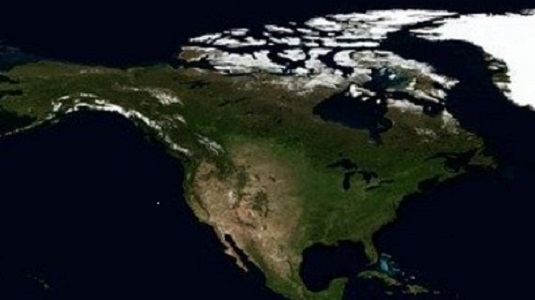Climate Change
Enabling residents, businesses and municipalities to reduce the causes and prepare for the impacts of climate change.
The Earth's climate has changed many times during the planet's history, with events ranging from ice ages to long periods of warmth. Historically, natural factors such as volcanic eruptions, changes in the Earth's orbit, and the Sun’s output affected the Earth's climate.
Life on Earth is possible because the Sun's energy warms the earth and its atmosphere. As this warmth radiates back into space, a portion is absorbed by a delicate balance of heat-trapping greenhouse gases in the atmosphere, thus creating an insulating layer functioning similar to a conventional greenhouse. This "greenhouse effect" is a necessary natural global mechanism.
In the last 100 years, however, research indicates that the concentration of greenhouse gases, particularly carbon dioxide (CO2), has seen an unprecedented increase primarily due to the combustion of fossil fuels and urbanization of natural areas. Adding more heat-trapping gases to the atmosphere is causing global temperatures to increase. This increase in global temperatures is causing changes to the Earth's climatic system resulting in more variable and extreme weather conditions in various parts of the world.
Check out these Educational Resources.

The 2024 New Hampshire Priority Climate Action Plan includes a detailed, state-level greenhouse gas (GHG) emissions inventory and a list of priority measures that could reduce the state’s GHG emissions. Also, the New Hampshire State of Air Report provides an update on the overall air quality status in New Hampshire, an overview of how air quality has changed over past decades and a discussion of why some air pollutants are of greater concern than others for New Hampshire.

In 2022, the University of New Hampshire Scholar’s Repository published an assessment of our state climate in the New Hampshire Climate Assessment 2021. The 2017 NOAA Report summarizes how the New Hampshire climate has changed over the past century and how the future climate of the region will be affected by a warmer planet due to human activities. Two 2014 reports provide greater detail concerning the past and future climate changes for southern New Hampshire and northern New Hampshire.

Assessments on the science of climate change
The Fourth National Climate Assessment Volume I: Climate Science Special Report is an authoritative assessment of the science of climate change, with a focus on the United States. Volume II: The Impacts, Risks, and Adaptation in the United States is a comprehensive and authoritative report on climate change and its impacts in the United States. The Intergovernmental Panel on Climate Change prepares comprehensive Assessment Reports about the state of scientific, technical and socio-economic knowledge on climate change, its impacts and future risks, and options for reducing the rate at which it is taking place.
Related Content
Ever wonder how many greenhouse gases are emitted in New Hampshire?
The U.S. Environmental Protection Agency conducts an annual greenhouse gas (GHG) emissions inventory for the nation and for each individual state. By tracking and reporting each gas in CO2-equivalents, the GHG inventory can provide a uniform measure of New Hampshire’s contribution to the global warming and climate change each year.









